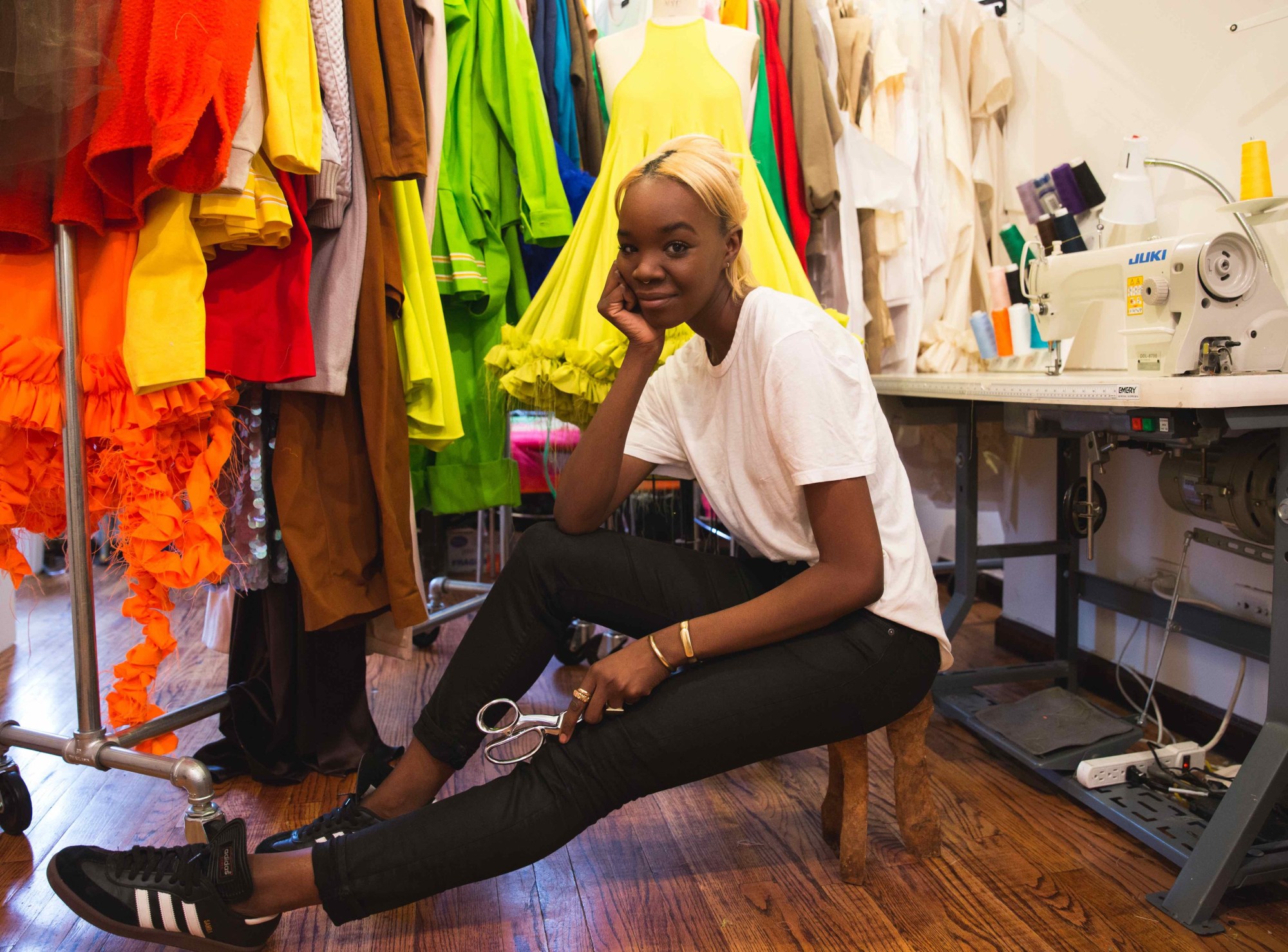On a recent morning deep in Bed-Stuy, Recho Omondi stands near a stove pouring tea in her apartment-cum-design studio. On one side of the would-be living room are long wooden work tables, a sewing station, and a wall of pictures that inspired current and past collections: a scene from Harmony Korine’s 1997 Midwestern dystopian art film Gummo, a Martin Parr shot, a still of Penelope Cruz in Woody Allen’s Vicky Cristina Barcelona, a series of gritty stylized scenes of black folks engaged in everyday life, and handmade patterns. Dressed in her label’s latest Omondi custom sweater along with graphic Jacquemus shoes and her hair braided back into blonde cornrows, Recho is the perfect incarnation of her brand.
“Color is always the first thing I start with,” says Omondi of the way she has begun each of her label’s three collections. For her first outing, she says, “I was gravitating toward pink, and pale, muted colors, and my eyeballs would just vibrate towards those colors everywhere I’d go.” She adds, “Before you know it, everything around you, your whole world is this thing that you’re feeling all the time.” For the current collection (“003″) she drew inspiration from the warmth of the color yellow, prompting the bright, primary colors like the fire extinguisher red and Sesame Street green.” She was also binge watching the Netflix shows Stranger Things and Narcos.
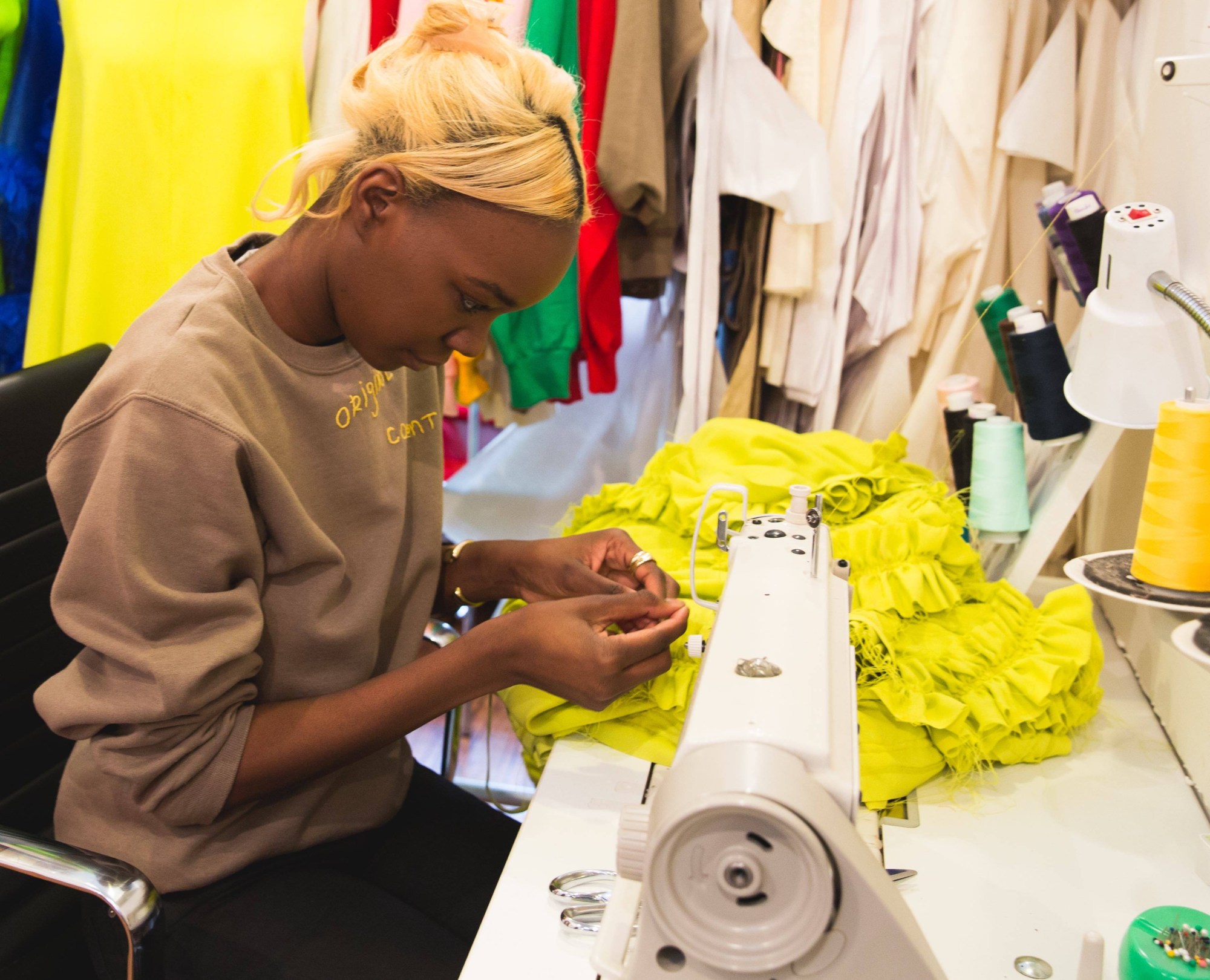
“The black experience is always a common thread of inspiration no matter where, or in what culture it’s happening,” the first generation Kenyan-American explains, sipping her tea. “The brand is auto-biographical. I’m talking about me.” She pauses and says, “It’s the story of a black girl trying to navigate herself through white supremacy, ultimately.” She believes that black women and black girls specifically are not “pushed to feel beautiful about themselves naturally, the way that they are.” In fashion, she says, there are few representations of black women on runways, in advertising campaigns, leading magazines or as creative directors at the most august fashion houses.
“You know what it’s like to feel underrepresented?,” she says, sounding exhausted. “Why is everyone white? There’s not enough love for us out there.”
Omondi was born in Tulsa, Oklahoma in 1987 to Kenyan parents who sent her and her sisters to Nairobi every summer during their childhoods. When she was 10 years old, Omondi became interested in fashion because her older sister was obsessed with the 1990s Canadian TV series Fashion File hosted by Tim Blanks. She started altering clothes she picked up from thrift stores before receiving her bachelor’s degree in fashion design from the Savannah College of Art and Design. She moved to New York City in 2010, freelancing on the design teams at The Gap, Calvin Klein and Suno. She left Theory during the Olivier Theyskens years to start her own brand.
In 2014, with money she saved while nannying for a black family in Central Harlem who she describes as “the Huxtables,” and a $15,000 investment, she launched Omondi. The first collection, 001, featured cleanly designed, loose-fitting slip dresses, relaxed pantsuits, and backless jumpsuits in earthy hues of muted purple, pink,and brown. Her collections, always shown on black models, have since shown the development of that oversized, textured, minimal aesthetic.
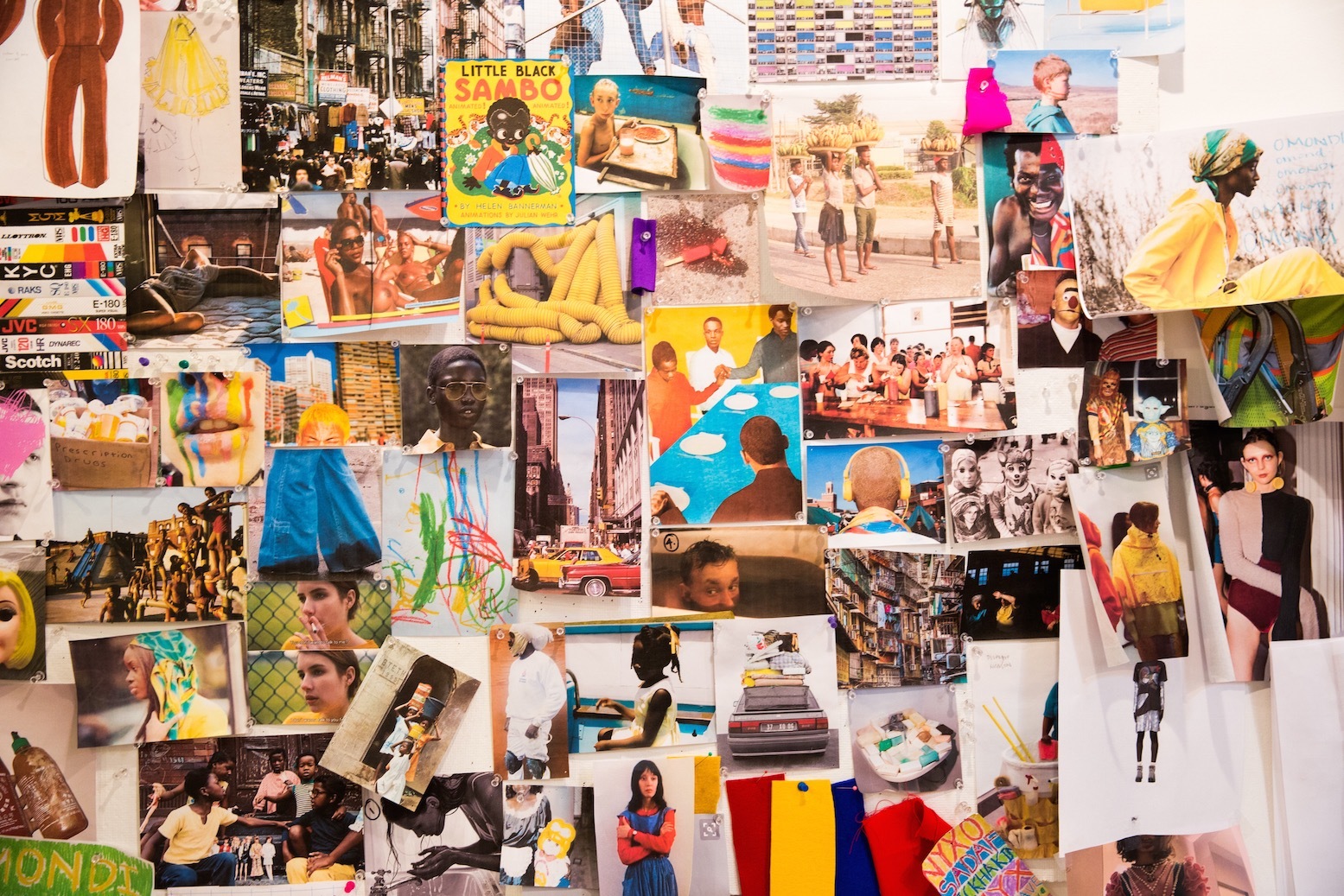
“I’ve always liked welt pockets,” she says. “I’ve always liked a good trouser with a proper waistband. I’ve always liked cuffs, collars, volume, and shapeless things–things that fell totally away from the body.” Omondi’s 002 collection reimagined the dress for her kind of black girl. She created a geometric shirt dress, a floor-length silk charmeuse henley nightgown, a velvet slip dress and a moss green baby doll dress with a low cut neckline. If there was ever an ideal Omondi woman, she would be Solange Knowles.
“I don’t believe in collections any more,” says Omondi. She thinks the fashion industry’s current structure of showing new clothes six times a year produces too much waste. For 003 she says, “I’m focusing on one style, which we’ve called the Carmichael,” a flat, shapeless halter dress named after Troy Carmichael, a precocious young black girl who is seen coming of age in Bed-Stuy during the summer of 1973 in Spike Lee’s 1994 film Crooklyn. “It doesn’t really look like something she would wear, per se,” admits Omondi of the more tomboyish Carmichael, who lived in a brownstone full of brothers. “I just think she was so cool, and she reminded me so much of me.” In naming the dress after Lee’s character, she seems to be inserting real representations of black girls like Carmichael, who remained graceful and grew independent because of her block’s challenges, into fashion’s narrative.
As we finish our tea, Omondi walks over to a rack of her designs and pulls off another of 003’s offerings: a brown “custom shirt” pullover with the word “Niggas” hand-stitched in a rainbow of colors across its left side. Omondi started making the sweaters as a kind of rite of passage. Anyone that would come to her studio, and spend time with the designer, would leave with a hand-sewn top. “They loved it,” she says. Then, the designer sent custom sweaters to black women she admired: actress Issa Rae, singer Solange, Teen Vogue‘s editor Elaine Welteroth, and Beyoncé’s “Formation” and Insecure director Melina Matsoukas. “It was an expression of pure love,” she says of the sweater that she has sold hundreds of since placing it on her website last month. “I wasn’t giving them a shirt that says Omondi on it because I wanted these black women to have something that’s for them, that they’ll love forever, because I did this thing because I respect them.”
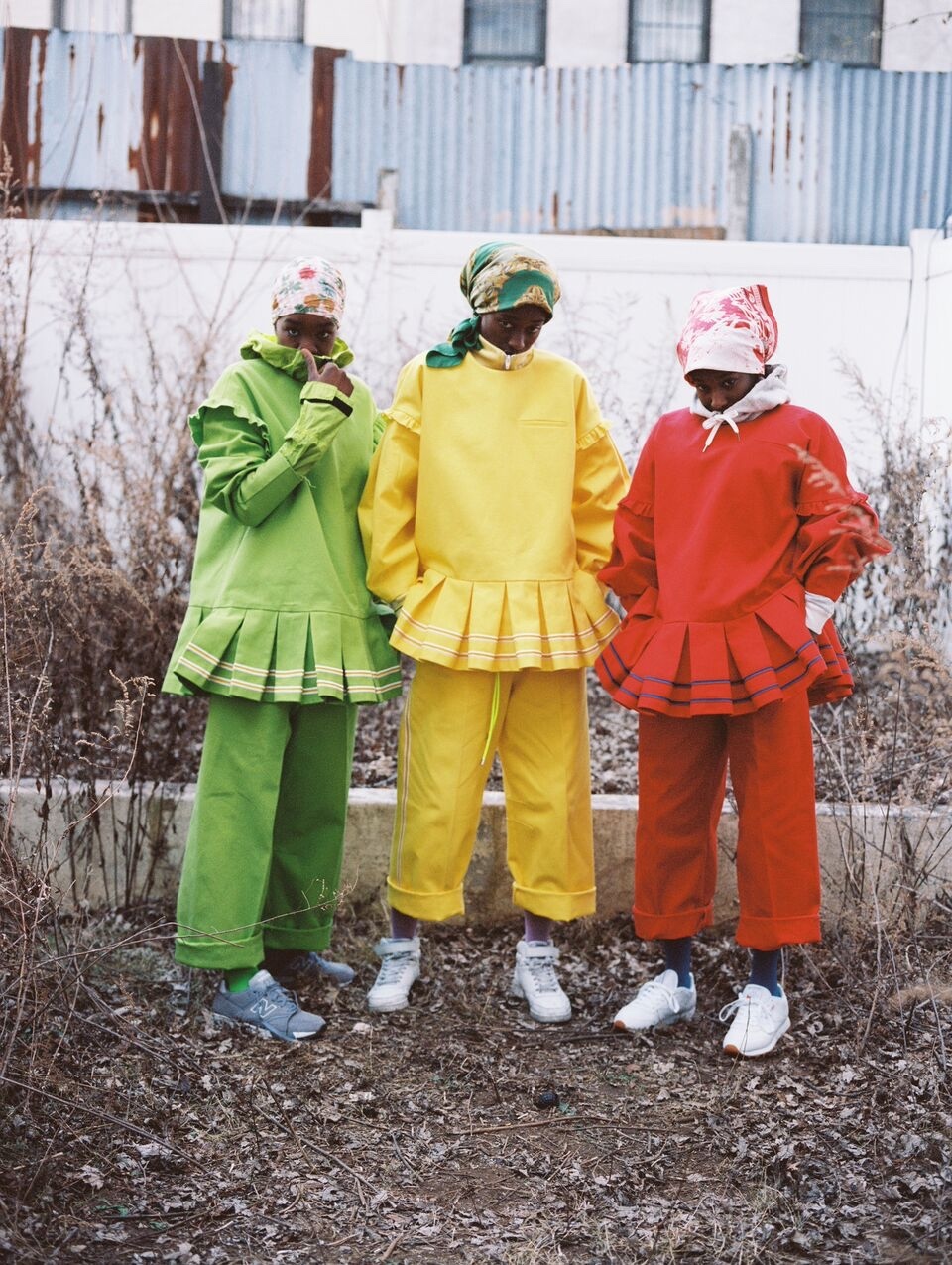
The “Niggas” sweater is a point of pride for the designer, a reclaiming of the word. “I thought, well, black history month is here and I love black people,” she says rousingly. “It’s funny, it’s cool, it’s cute, and I like it. I want people to feel proud enough to wear it. The difference is that wearing it is for real. You didn’t say it once under your breath at a concert. Really, a lot of this shit comes down to people not wanting to make other people uncomfortable. That’s obnoxious, and that’s why I want people to wear it and wear it proudly.” She adds, “Especially if you’re black.”
One conversation has stuck with the young designer over the years. “I’ll never forget this,” she says, walking me toward the door, “I had a black person tell me years ago, when I first started Omondi, if I did a show, I shouldn’t cast all black girls. I told her, ‘If I do a fashion show, I’m doing some black shit, all day every day.’ The woman said, ‘Recho, the industry doesn’t need a Malcolm X.’ I was like, ‘Doesn’t it?'”
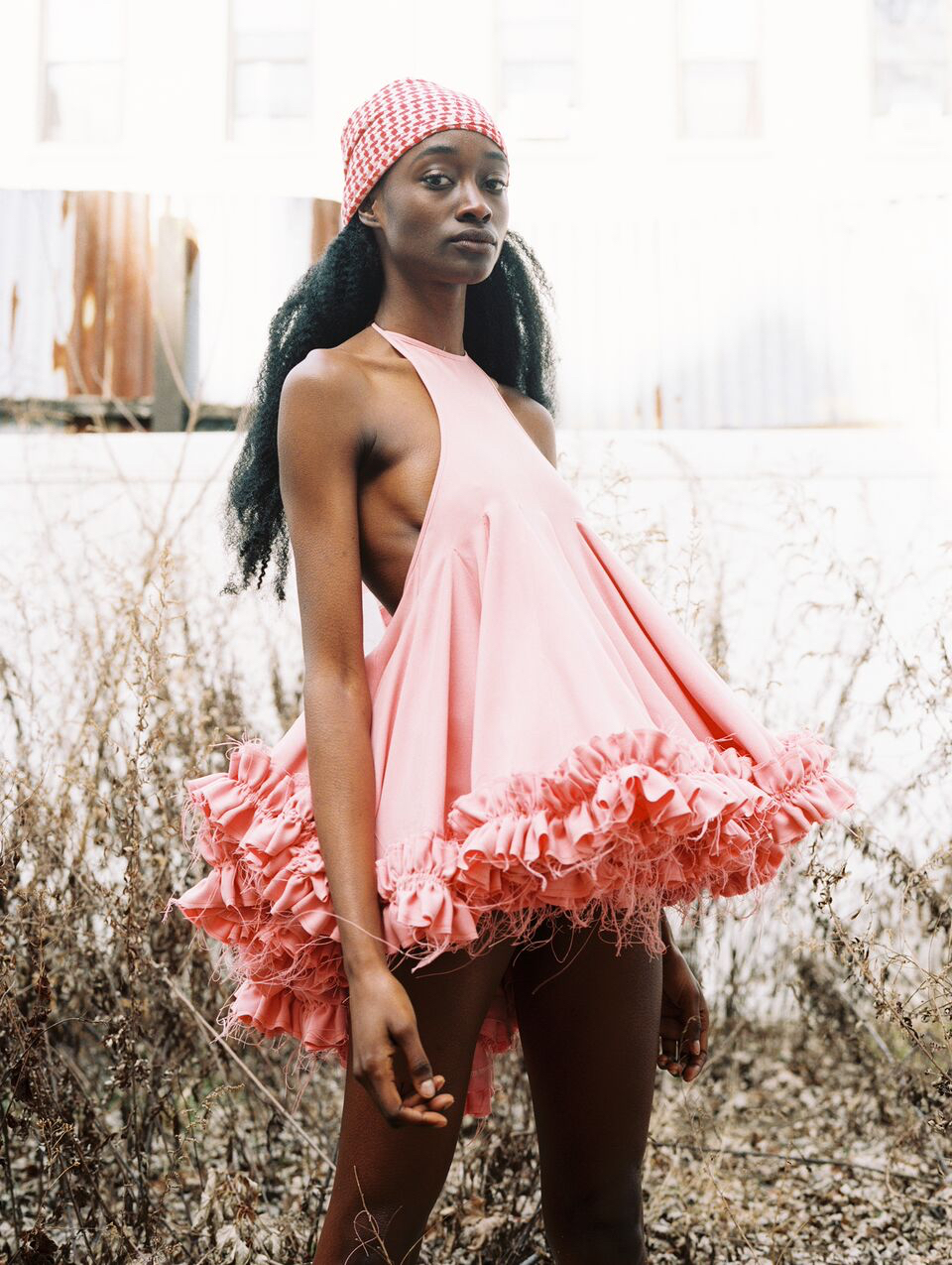
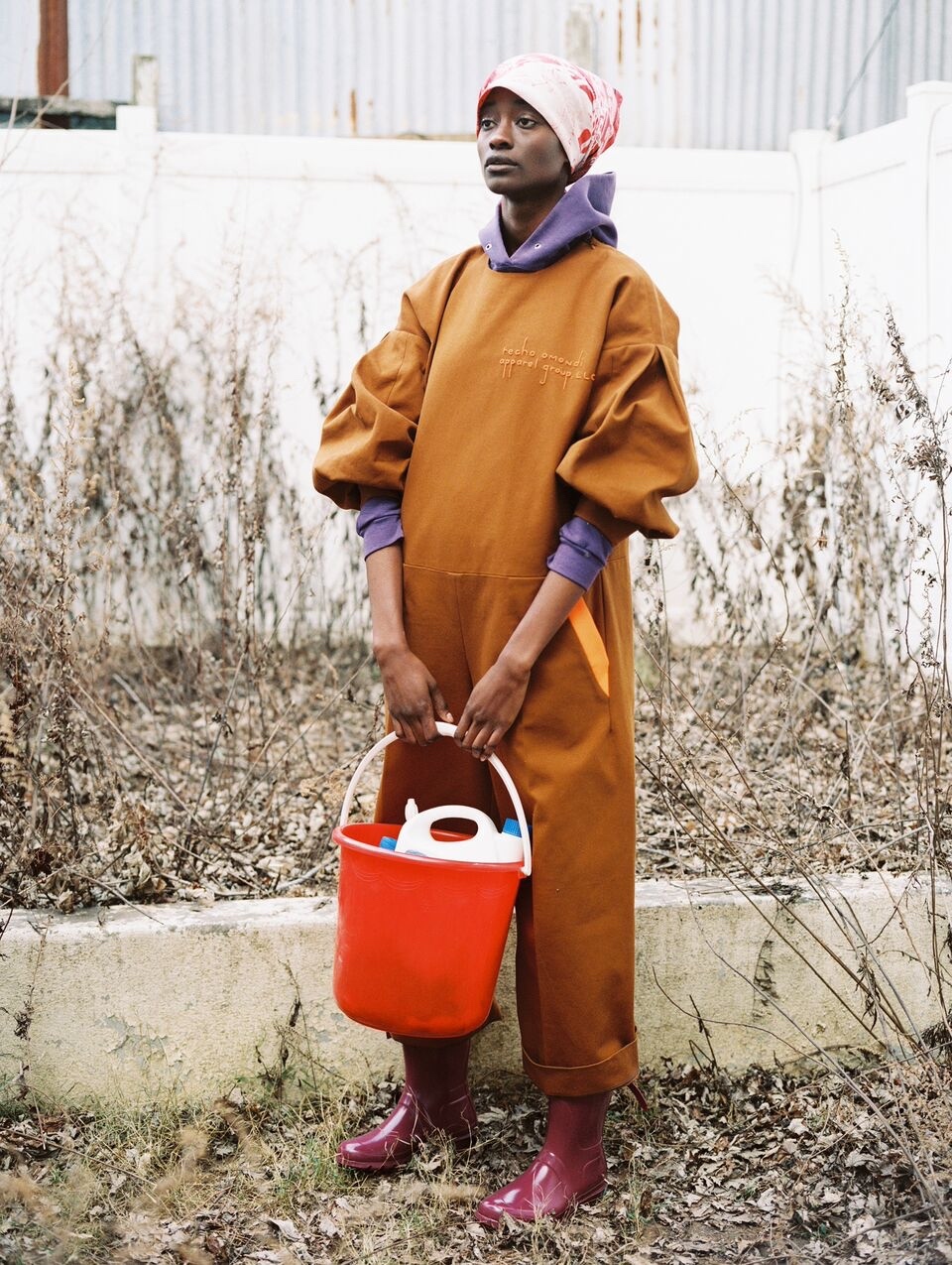
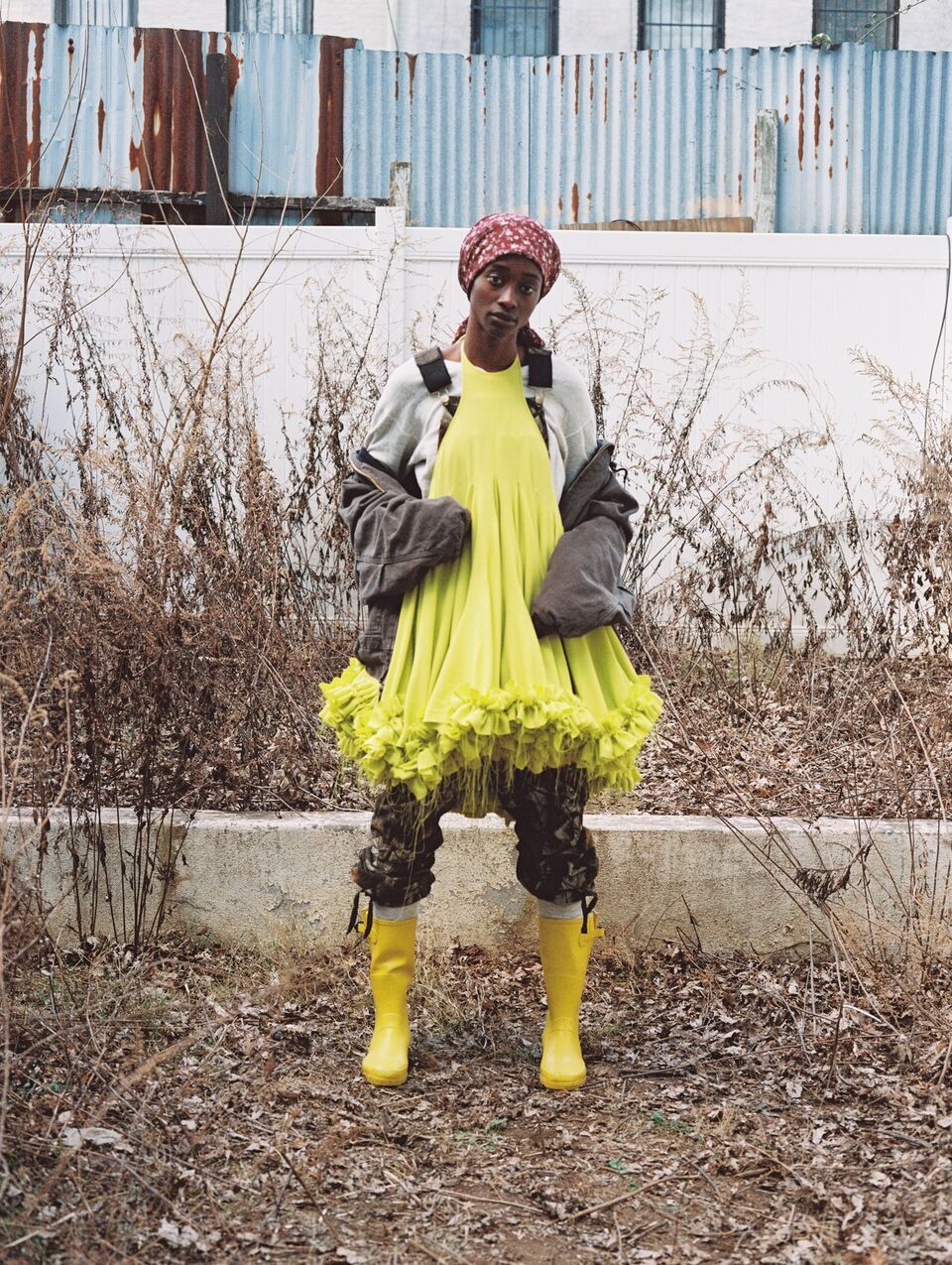
Credits
Text Antwaun Sargent
Portrait and studio photography Maksim Axelrod
Lookbook photography Cary Fagan
